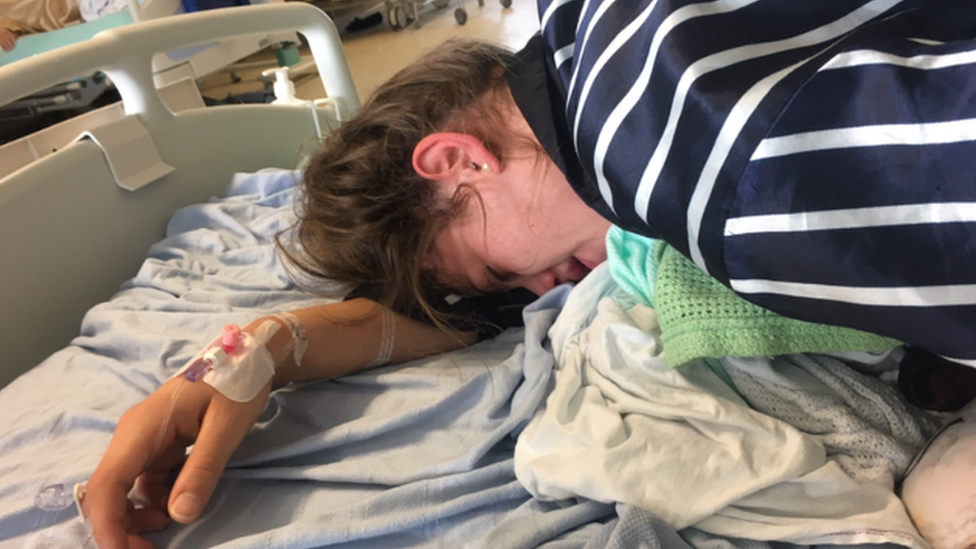Endometriosis: Woman spends £20k to manage debilitating pain
- Published
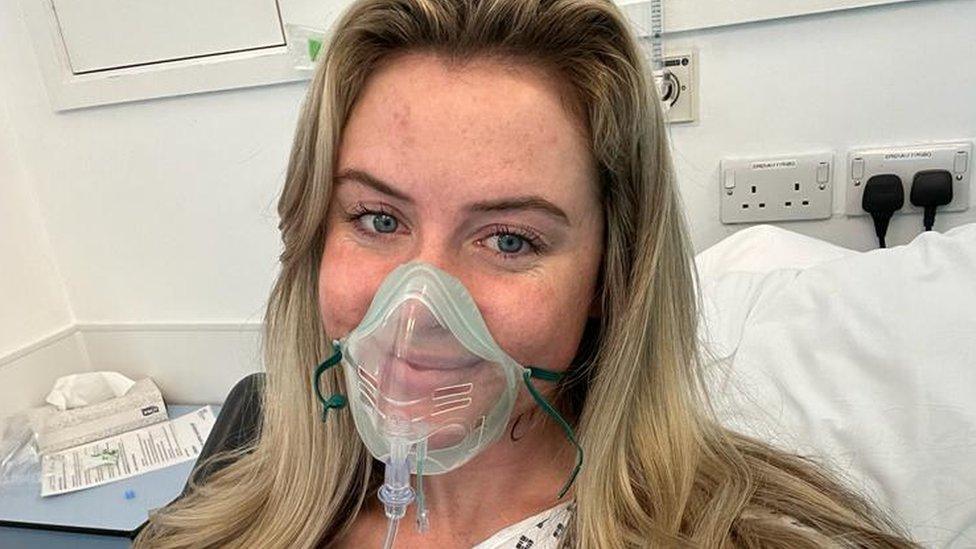
Sophie said her financial privilege meant she could access care that other women could not
A woman who has spent £20,000 to manage her endometriosis has said more should be done to tackle healthcare inequality.
Sophie Richards, 26, has had six surgeries and countless treatments - some of which she has funded privately.
A campaign group has warned women with endometriosis, external are getting into debt in order to fund their own treatment.
The Welsh government said it was committed to high quality care for people living with the condition.
Endometriosis causes tissue similar to the lining of the womb to grow in other places, such as the ovaries and fallopian tubes.
The condition, which affects 1 in 10 women, can cause serious pain, external and affect fertility.
Ms Richards, from Carmarthen, said she had only been able to get better because she was "able to access money to fund [the treatments]."
"I would say I've probably spent about £20,000," she said. "Some of that my own money, some my parents' [money]."
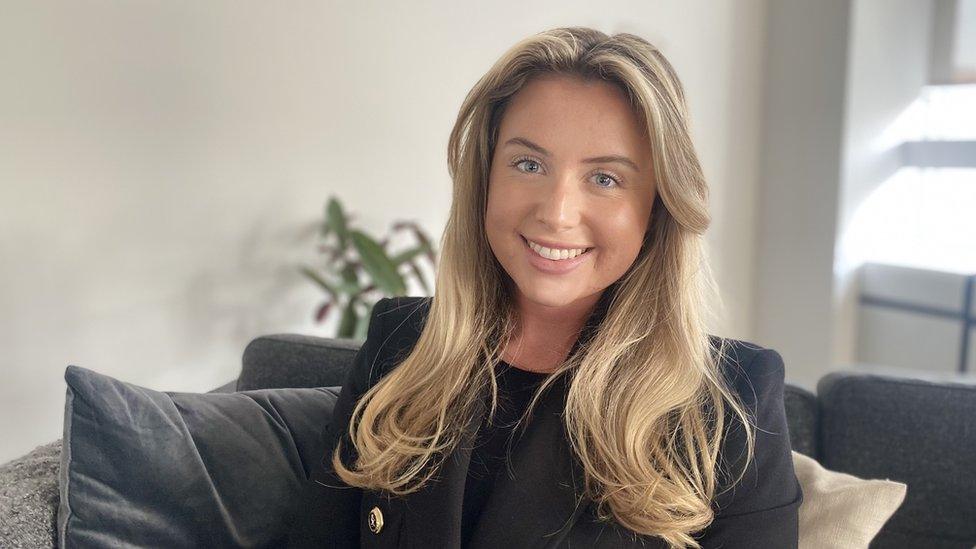
Sophie Richards is calling for a more open conversation about the realities of endometriosis
Sophie said she received "absolutely amazing care" from clinicians on the NHS, but said accessing them was difficult.
She has paid "at least £15,000" to freeze her eggs in a hospital in London due to concerns the condition has affected her fertility.
"I used my bonus to pay for my first one [round of egg freezing] and my parents paid for the second," she said.
Sophie said she recognised her financial privilege and is calling for a more open conversation about the realities of endometriosis, from a financial and social perspective.
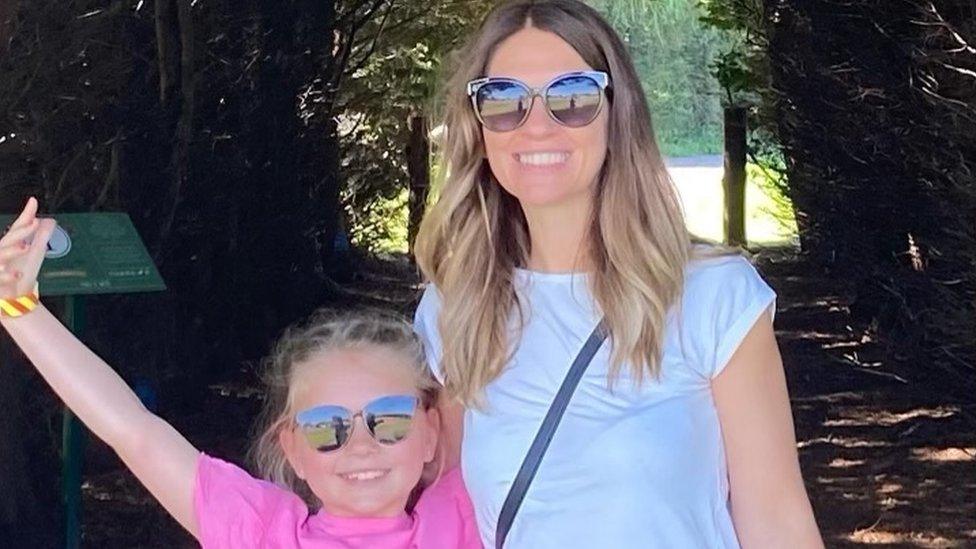
Amy Jenner says endometriosis causes her such severe pain that sometimes her daughter has to help care for her
Amy Jenner, from Caerphilly, also has endometriosis.
The condition causes such severe pain that sometimes her 10-year-old daughter has to help care for her.
"Our whole life revolves around this disease," she said.
When her GP told her she would have to wait 18 months to get an NHS scan, Amy decided to be seen privately.
"I did go private to get the scans done, but then I got the fee for the surgery," she said. "It's roughly £10,000 for the treatment. I can't afford it. I've just got to wait."
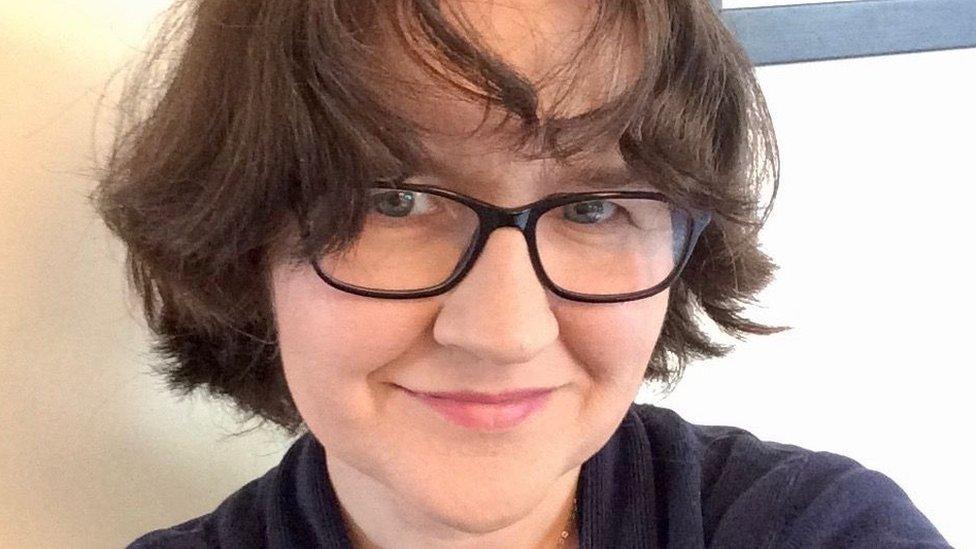
Writer Stephanie Burgis took out a £4,000 loan to fund her own surgery
Stephanie Burgis, 41, is in a similar situation.
In 2019, she and her family took out a loan to help fund a £4,000 private treatment in Cardiff.
The specialist who operated on Stephanie found endometrial tissue on her bladder and bowel and said that her condition was among the most severe they had seen.
"Women in pain don't get taken seriously," said Ms Burgis.
Ms Burgis' condition has since worsened, and she is now on a waiting list to be referred for more NHS treatment.
"I can't afford a second private surgery this time, so I'm back on the waiting list."
'Debilitating pain'
Endometriosis campaigner Beth Hales, from the Fair Treatment for the Women of Wales, said women are being "forced to run up credit card debt" to fund their own treatment or "live indefinitely in chronic, debilitating pain."
The campaign group said waiting times in Wales were "pretty grim", with some of their members being told to expect waits of six to seven years for specialist care.
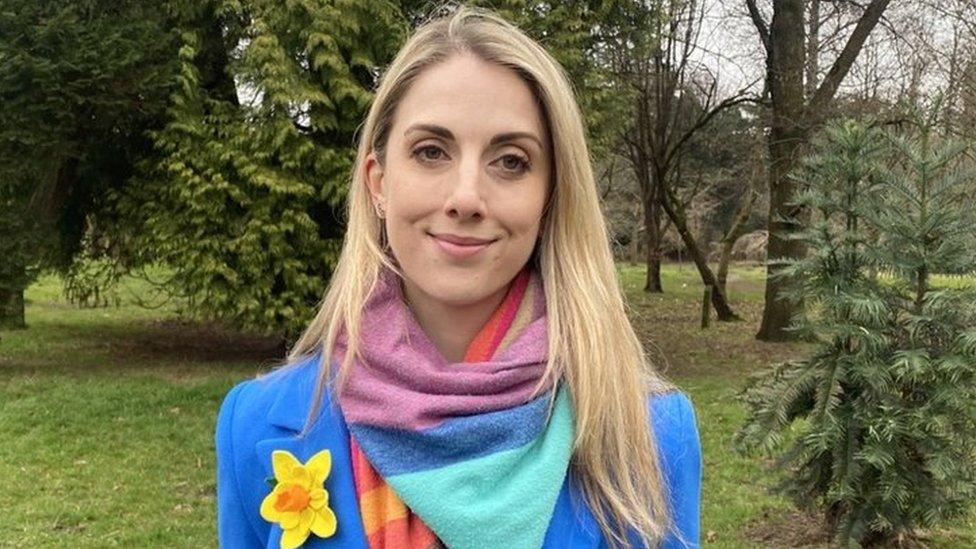
Campaigner Beth Hales says women are being forced to choose between paying for treatment themselves or living with debilitating pain
Mr Anthony Griffiths, one of the few endometriosis specialists in Wales, said waiting times are "frustratingly long".
"Currently our waiting list is in the order of three years," he said.
Mr Griffiths is based in Cardiff and provides treatment for both NHS and private patients.
"The waiting list to see me in the private sector is in the order of weeks," he explained. "As opposed to sadly, in the order of months in the NHS sector."
The Welsh government recently funded a specialist endometriosis nurse in each health board in Wales.
Mr Griffiths said it made a "a tremendous difference", playing an "educational role" in raising awareness of the condition. But he said more specialists are needed.
"They are saturated in terms of trying to deal with the amount of disease that's out there," he explained.
The Welsh government said health boards have a responsibility to "deliver high quality gynaecology services, including early diagnosis of endometriosis in accordance with NICE guidelines."
A spokesperson added: "We are committed to ensuring equitable, high quality care for conditions which affect women, including endometriosis, and NHS Wales will be publishing a 10-year Women's Health Plan."

A SPECIAL SCHOOL: Behind the scenes at a school like no other
DARE TO DANCE: 'When I dance I feel like I can overcome anything'

- Published22 July 2022
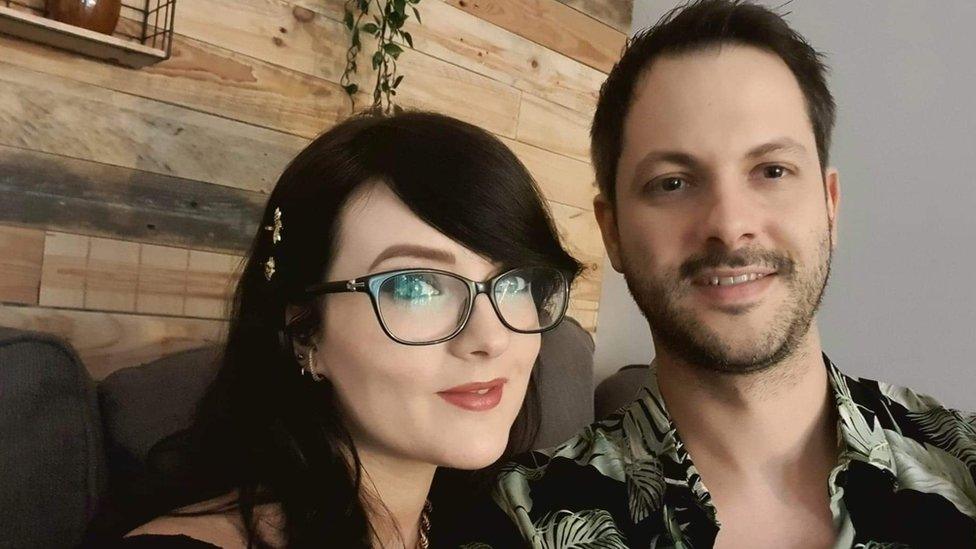
- Published8 March 2022
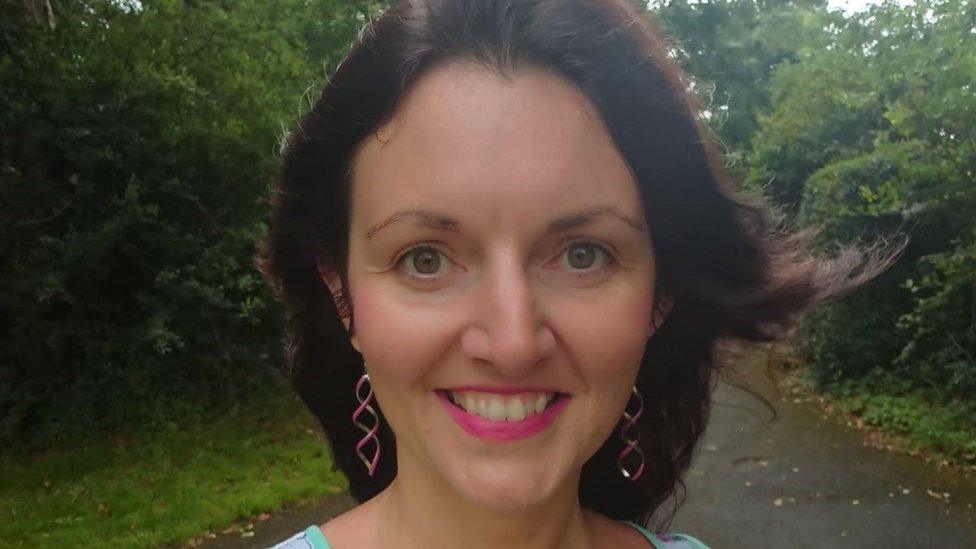
- Published3 February 2021
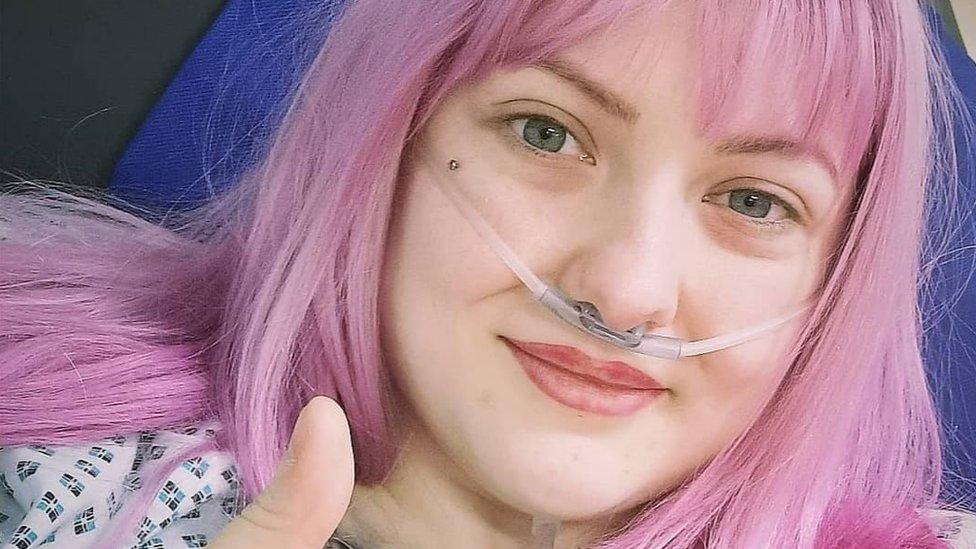
- Published7 October 2019
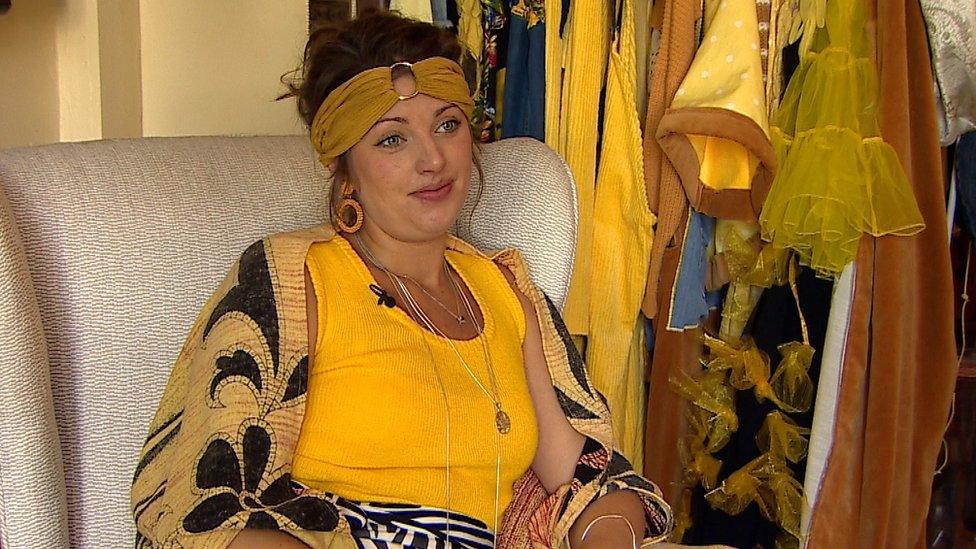
- Published26 November 2018
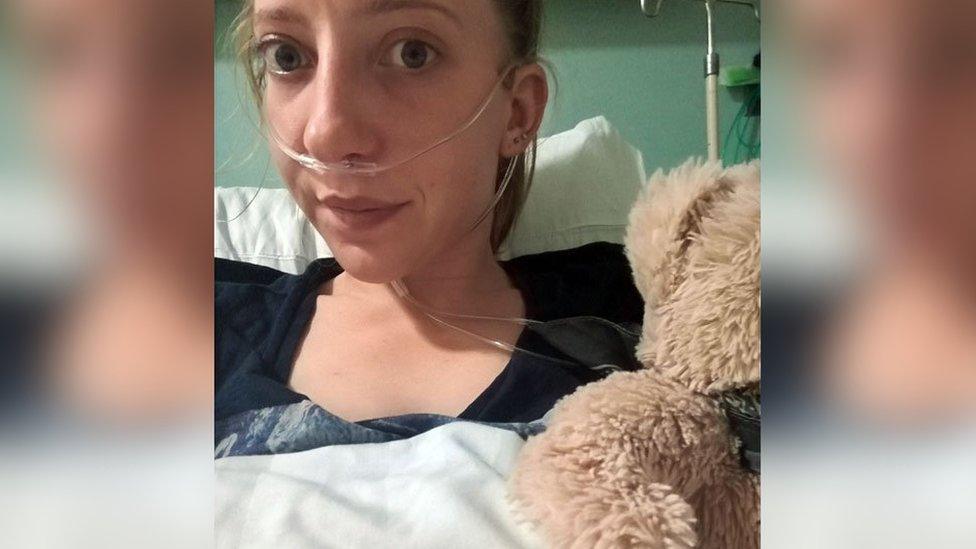
- Published7 March 2018
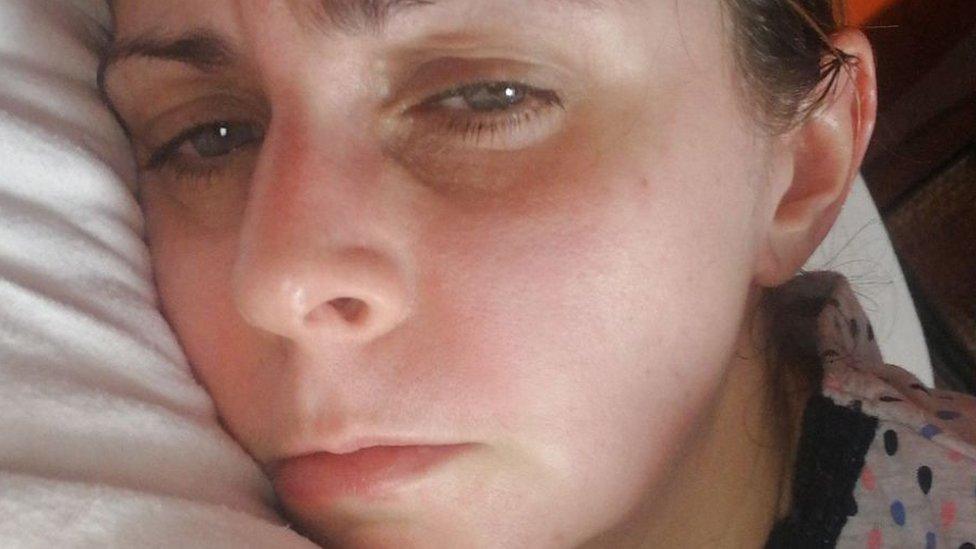
- Published6 December 2017
